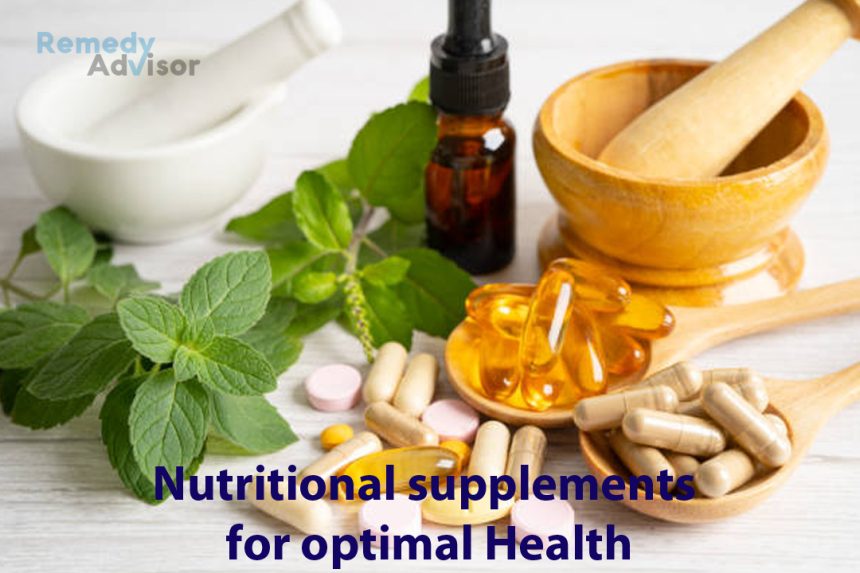Venture into any health-food store or pharmacy these days and you’ll find you surrounded by nutritional supplements from vitamins to bee pollen.
Is there any health benefit to taking supplements? Absolutely, says Tufts University nutritionist Dr. Jeffrey Blumberg.
Even if you aren’t sick, says Blumberg, a few well-chosen supplements can make you much, much healthier
Item #1: Few Americans get the Recommended Daily Allowance (RDA) for all nutrients. Only 9% adhere to the Agriculture Department’s dietary guidelines.
Item #2: The RDA is based on the amount of each nutrient needed to prevent deficiency related diseases scurvy, beriberi, rickets, etc. Yet hundreds of studies confirm that risk of chronic diseases like cancer and heart disease can be minimized only by taking these nutrients at levels in excess of the RDA.
Item #3: It’s virtually impossible to get sufficient quantities of some key nutrients from food alone even with the most healthful diets.
Key nutrients
• Folic acid
This B vitamin (also called foliate) reduces blood levels of homocysteine. Research has linked high levels of this amino acid (a by-product of cell metabolism) to both heart attack and stroke.
Folic acid also guards against colon cancer and birth defects. Since these defects occur in the first two months of pregnancy, any woman who even thinks she might become pregnant should take a daily supplement containing 400 micrograms (mcg) of foliate.
Sources: Green leafy vegetables, whole-wheat bread, nuts, peas and beans. RDA: 400 mcg.
• Vitamin B-6
This vitamin works with folic acid to break down homocysteine. If all Americans upped their daily intake of folic acid and B-6, 50,000 fewer people would die annually of heart attack and stroke.
Sources: Meat, poultry, fish, liver, wholegrain products, most fruits and vegetables. RDA: 2 milligrams (mg).
• Vitamin D
This vitamin facilitates the body’s absorption of dietary calcium. It’s essential for healthy bones.
Sources: Fortified dairy products, fortified cereals and breads, liver, eggs and cod liver oil. Also synthesized in the skin during exposure to sunlight. RDA: 400 international units (IU).
• Vitamin E
Along with vitamin C and beta-carotene, vitamin E is a potent antioxidant. It neutralizes “free radicals,” cell-damaging molecular fragments that circulate through the body.
Daily doses of vitamin E may reduce the risk of cancer of the esophagus, stomach and lung and cataracts and other eye diseases.
Unfortunately, it’s hard to get sufficient vitamin E from a healthful low-fat diet so supplements are necessary.
Sources: Vegetable oil, wheat germ and nuts. RDA: 30 international units (IU).
• Beta-carotene
More than 200 studies have shown that this antioxidant plays a key role in preventing cancer.
Sources: Broccoli, cantaloupe, carrots. RDA: There is no RDA for beta-carotene.
• Selenium
Selenium is another cancer-fighting antioxidant. A study in China involving 30,000 people found a dramatically reduced risk of cancer among individuals who took supplemental vitamin E, beta-carotene and selenium.
Sources: Fish, shellfish, meat, whole-grain cereals, dairy products. RDA: There is no RDA for selenium.
• Vitamin C
Studies have linked this antioxidant to reduced risk of lung, colon and gastrointestinal cancers. It may also help prevent heart and eye disease.
The typical American diet provides 120 mg a day of vitamin C. That’s twice the RDA, but a National Institutes of Health study suggested that the RDA is too low. A daily intake of 250 mg is better.
Sources: Citrus fruits, green peppers, broccoli, cabbage, cauliflower, potatoes, tomatoes. RDA: 60 mg.
• Calcium
This mineral is crucial for preventing osteoporosis and it’s not just for older women. A high calcium intake along with sufficient vitamin D is important for all ages, to build bone tissue and retain it.
Adults need 1,200 to 1,500 mg of calcium a day. To get this much from food, you’d need to drink about five glasses of milk or eat several servings of yogurt, cheese or broccoli. For most people, it’s easier to take a daily supplement.
Sources: Dairy products, leafy green vegetables and beans. RDA: 800 mg.
The three-pill strategy
All adults should take daily nutritional supplements with breakfast. This simple three pill-a-day regimen provides high levels of the most critical nutrients with minimal hassle.
Pill #1: Multivitamin/multi-mineral. It should contain 100% to 200% of the RDA for all vitamins mentioned above. Check the expiration date on the bottle pills loses potency as they age.
Pill #2: Vitamin E. Take a pill that contains 100 to 400 IU. Or if you prefer, you can take a combination pill containing vitamins E and C, beta-carotene and selenium.
Pill #3: Calcium. The average person gets only about 750 mg a day in calcium from food sources. Since this is about half the amount you need for healthy bones, take one 600- to 700-mg calcium pill each day.







